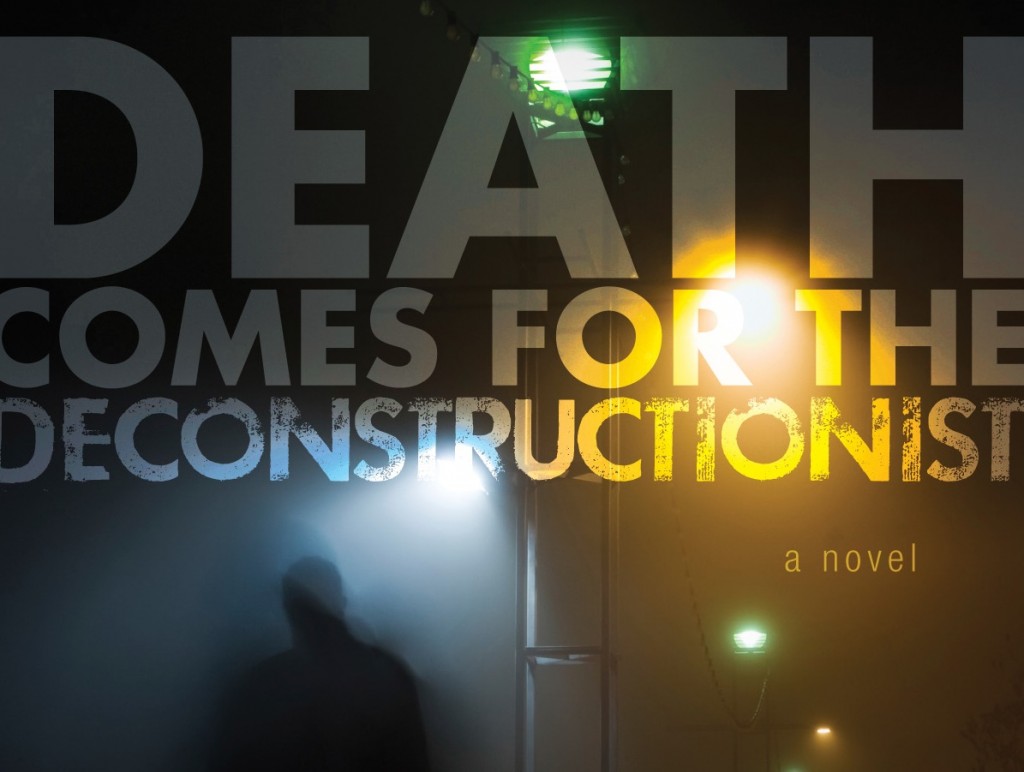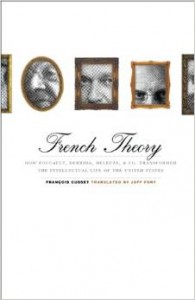
Death Comes for the Deconstructionist lays out the set of confounding problems facing us in the wake of the overwhelming victory of French theory in America’s academia. The plot revolves around the protagonist Jon Mote being called to investigate the death of his former grad school mentor, the deconstructionist, Richard Pratt–something of an academic star a bit past the peak of this popularity.
One of Derrida’s most famous dictums was that “there is nothing outside the text,” that every meaning is deferred in the play of words in texts that never rub against reality out there. This conveniently ignores Derrida’s intentions and much of his later engagement with theology.

Nevertheless, I remember my undergraduate days when students carried their Derrida, Foucault, Deleuze, & Co. everywhere they went like a fundamentalist might carry their Bible–without being aware of the irony. To them the notion that nothing could be pinned down by phallocentric-logocentrist-ontotheology was liberating. They never noticed how dogmatic their opinions were. Their way of carrying themselves was so comical that Deleuze hanger-ons eventually earned the moniker Deleuzers.
Jon Mote’s always uncomfortable interviews with people possibly connected to Pratt’s murder uncover many phenomena that resist vague fade outs into deconstruction: rape, lynching, racism, suicide, wartime memories, divorce, religious experience, mental illness, the irrepressible desire to learn about life from literary texts, and yes, even sexism. It is a novel about lives ruined, lives crying out after justice, and lives seeking restitution and reconciliation.
As Mote uncovers these indestructible, un-deconstructable, problems he is accompanied by his mentally challenged sister Judith whose presence helps to keep his demons, the insistent and increasingly autonomous voices in his head, at bay. The voices are both a kind of postmodern pastiche of voices, some recognizably literary, others not, all of them bordering upon the demonic. The parallel between demonology and contemporary theory is apposite.
===================================
Check in with Rabelaisian Catholicism on Ethika Politika later today for the rest of this review.
All I’m going to say is that Daniel Taylor’s debut novel (hard to believe it’s a debut!) matches just about anything you will find on my top living religious novelists list, or even my list of all time favorite novels.












